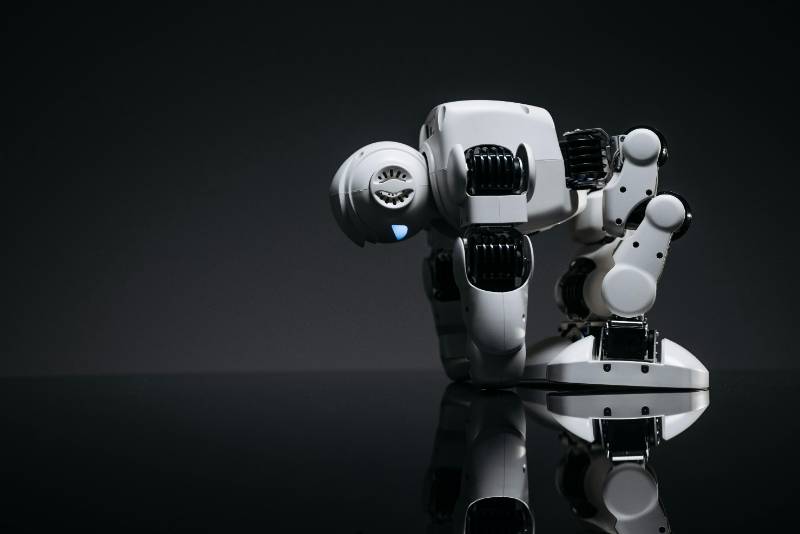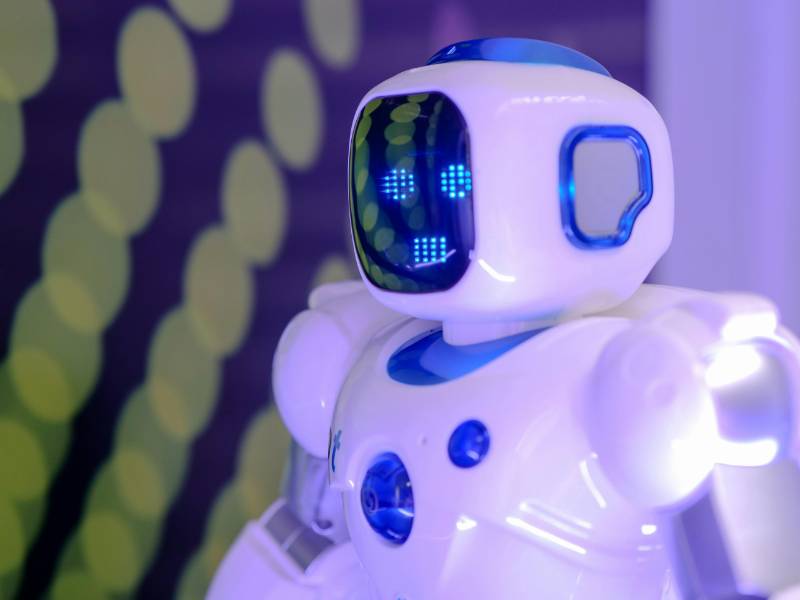
The Future of Generative AI in Creative Industries
5 min read
14 Oct 2025
Introduction
Generative AI is reshaping creative industries by enabling machines to produce text, music, art, videos, and even entire design prototypes. While once seen as tools of automation, AI models are now evolving into creative collaborators, unlocking new forms of expression and innovation. The technology offers limitless opportunities for artists, designers, musicians, filmmakers, and marketers to experiment in ways that were unimaginable just a few years ago.
The Rise of Generative AI
Generative AI, powered by models such as GPT, DALL·E, and Stable Diffusion, has gained momentum across industries. These tools use deep learning to generate original, high-quality content that mimics human creativity while pushing beyond traditional boundaries.
Key Applications
- AI-generated music compositions and remixes
- Scriptwriting and content creation for films and digital media
- Fashion and industrial design prototypes
- Photorealistic images, CGI effects, and film editing
- Architectural visualizations and interior design concepts
Impact on Art and Design
Artists are increasingly collaborating with AI tools to produce new forms of artwork. Generative AI is assisting in creating digital paintings, 3D animations, and conceptual art. It allows artists to rapidly iterate on ideas, explore entirely new styles, and challenge the definition of authorship in contemporary art.
Storytelling and Entertainment
In filmmaking and gaming, AI is already being used for scriptwriting, character design, and immersive world-building. Studios can use AI tools to reduce production time and experiment with different narrative possibilities. For example, AI can suggest multiple plot twists, develop dialogue options for characters, or even simulate entire environments in virtual production.
Examples
- AI-written short films gaining recognition at festivals
- Game developers designing expansive landscapes with AI-generated assets
- Virtual influencers created entirely by generative models
Music Industry Transformation
Generative AI tools are composing original music across genres. While some artists see it as competition, others are embracing AI as a collaborative instrument, combining human emotion with AI’s limitless technical variations. These tools can even personalize music for specific moods, events, or advertisements.
Advertising and Marketing
Creative agencies are adopting generative AI for personalized campaigns, dynamic ad creation, and real-time customer engagement. By tailoring content to individual preferences, brands can achieve stronger connections with audiences. Marketers are also using AI to A/B test campaigns at scale, optimizing in real time for maximum impact.
Challenges and Ethical Concerns
Generative AI also raises pressing ethical questions: Who owns AI-generated art? How can we prevent plagiarism or misuse? Balancing innovation with intellectual property rights is one of the biggest challenges facing creative industries today. There are also societal concerns about deepfakes, misinformation, and the potential replacement of human jobs in creative sectors.
Key Concerns
- Ownership of AI-generated works and copyright challenges
- Ethical boundaries in deepfakes and misinformation
- Potential job disruption in creative fields
- Balancing creativity with intellectual property rights
- Ensuring transparency and credit for human collaborators

Future Outlook
The future of generative AI in creative industries lies in collaboration, not replacement. As artists, designers, and marketers learn to integrate AI tools into their workflows, we will see hybrid forms of creativity emerge that combine human imagination with AI’s generative power. From interactive storytelling to hyper-personalized marketing campaigns, the creative industries of tomorrow will likely be co-authored by humans and intelligent machines.
FAQs
How is generative AI used in art?
Generative AI helps artists by creating digital paintings, 3D models, animations, and even entirely new artistic styles. It allows creators to experiment quickly, scale their ideas, and gain inspiration. By combining AI-generated outputs with human creativity, artists can push boundaries, explore fresh techniques, and deliver innovative works that were previously time-consuming or technically difficult to achieve.
Will AI replace human creativity?
AI will not replace human creativity but instead augment it. While AI can generate impressive visuals, music, or text, it lacks the emotional depth, intuition, and storytelling ability unique to humans. Artists use AI as a collaborator, blending machine efficiency with human imagination to create richer, more meaningful art forms and creative experiences for diverse audiences worldwide.
What role does AI play in the music industry?
Generative AI is transforming music by composing original tracks, generating background scores, and assisting with mixing and mastering. Musicians often treat AI as an instrument or co-producer, using it to experiment with new sounds, genres, and creative techniques. This collaboration enables faster production cycles, greater innovation, and personalized music tailored to specific audiences or media applications.
Are there ethical issues with generative AI?
Yes, ethical concerns are significant. They include copyright infringement when AI is trained on existing human-created works without consent, disputes over ownership of AI-generated content, and misuse of deepfakes. There are also concerns about fair compensation for artists whose work informs AI models. Addressing these issues requires regulation, transparency, and frameworks that protect both creators and consumers.
What is the future of AI in creative industries?
The future of AI in creative industries will focus on collaboration between humans and machines. Hybrid workflows will combine human intuition with AI’s generative power to create immersive storytelling, interactive art, and personalized media. Expect advancements in design, marketing, gaming, and entertainment, where AI enhances creativity rather than replaces it, paving the way for new artistic horizons.
Can generative AI help small creators?
Yes, generative AI empowers small creators by offering affordable, accessible tools for design, video production, writing, and music composition. Independent artists with limited resources can now produce high-quality professional content. AI reduces production time and cost, enabling small creators to compete with larger studios, expand their reach, and focus more on creative storytelling and audience engagement.
How are businesses using generative AI in marketing?
Businesses leverage generative AI to craft personalized ad campaigns, design social media visuals, and create engaging content strategies. AI enables marketing teams to generate large volumes of relevant, high-quality material while tailoring messages to individual customers. This improves engagement, enhances brand loyalty, and reduces costs, allowing companies to scale creative output while maintaining audience-specific personalization.
What risks do creative professionals face with AI adoption?
Creative professionals face risks such as reduced job opportunities, lack of recognition for their contributions, and over-reliance on homogenized AI-generated content. The widespread adoption of AI could also undervalue human originality. To overcome these challenges, professionals must upskill, embrace hybrid workflows, and advocate for ethical AI practices that ensure fair recognition and sustainable creative ecosystems.

The AR Breakthrough That Will Make Blockchain Transactions Simpler Than Ever!
5 min read | 11 Oct 2025
How AI Is Making Blockchain Smarter and Safer – The Inside Scoop!
7 min read | 10 Oct 2025
The Big Tech Twist: How VR Is Set to Disrupt Blockchain Like Never Before!
6 min read | 09 Oct 2025
Unlocking the Power of AR: How Augmented Reality Is Set to Revolutionize Blockchain!
7 min read | 08 Oct 2025More Articles

The Future of Augmented Reality: Apple's Vision with ARKit and AR Glasses
5 min read | 05 Jun 2025

Exploring the Evolution of Apple Watch: From Fitness Tracker to Health Companion
4 min read | 04 Jun 2025

MacBook Pro 2024: Redefining Power and Performance in Apple's Flagship Laptop
7 min read | 03 Jun 2025

iOS 18 Preview: What's Next for Apple's Mobile Operating System?
6 min read | 02 Jun 2025
More Articles

Carbon Capture Technology: Combatting Climate Change
5 min read | 30 Sep 2025

Emotional AI: Machines that Understand Human Emotions
7 min read | 29 Sep 2025

Human Augmentation: Enhancing Abilities with Technology
4 min read | 28 Sep 2025

Photonic Computing: Light-Based Data Processing
4 min read | 27 Sep 2025
